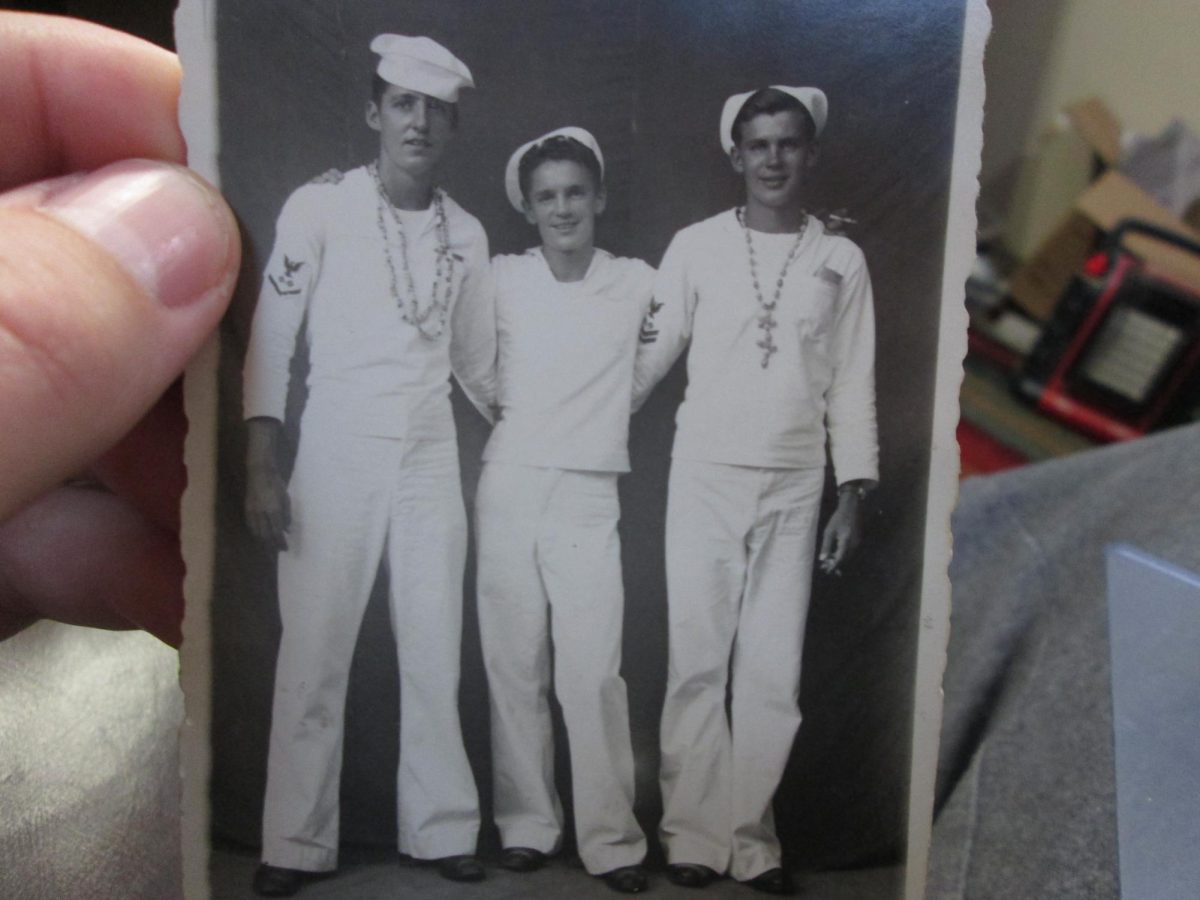Most people choose books with pretty covers. They’re intrigued by the colors or graphics, sometimes without glancing at the author, or even the blurb. Occasionally books draw people in by the familiar title heard by word of mouth. However, one may never stop to think about the time and effort put into the words inside the spine. For some, it may take two years, others 20. Matthew Rinderknecht, social studies teacher, has spent years devoted to teaching and his family, but behind the scenes of a loving dad and passionate teacher, he is a writer.
Rinderknecht aspired to write a book about his grandfather’s military service. His grandfather served in the First Joint Assault Signal Company during World War II. By writing this book, Rinderknecht hoped to feel connected and closer to his grandpa. “When I research and write about it, it’s like I can feel him, I really can,” he said. Rinderknecht wants to be able to present his book to his father before he passes away. However as the days go on, that deadline slowly inches closer, and he knows the clock is ticking. He presented a manuscript of this book to his father at Christmas. “I’ve very rarely seen my dad cry, but that was one time he’d cried,“ said Rinderknecht. “I know that I have to get this done; I feel the future depends on it,” he said. “History is only told by the living.”
A vital part of his writing process was the research aspect. However as years went on, he came to find many people he called to interview were deceased or didn’t want to talk about their experiences while serving: “One thing that really stood out to me is many of the people I talked to, even though they were in their late 80s or early 90s, still did not want to talk about it,” he said. Many people found it very painful to talk about their experiences, which is why Rinderknecht believes it’s so important their stories get shared. He believes it’s easy to take something for granted when you lack information; nonetheless, no matter how painful some stories were, most eventually came around to talking to Rinderknecht about their past. “He comes on the phone, you can tell his eyes are closed, and he’s reminiscing on something that happened earlier. To hear a grown man in his 90s start to cry over his memories is something I’ll never forget,” he said. Writing this book has been a unique experience for Rinderknecht, and it has shaped him into who he is today. To know what a person is doing over the phone without having to see their emotions, or body language, and feeling so truly connected to them, is so rewarding.
Something important to take into consideration is that everyone had experiences and different ways of sharing them, but all had common factors and were alike in a way. Rinderknecht said, “My grandfather’s experience was unique, but at the same time it wasn’t.” Even though it’s unique to others to hear the stories these veterans lived, to them, their stories were connected by fear, pain, success, and failure. Rinderknecht plans to set his story apart from other books of war by keeping it real and true, and hopefully, by the end, leave the reader with knowledge and fulfillment. “This is a story of tragedy, of sacrifice, of success, of failure, of blood, sweat, and tears; it’s a human story. I’m gonna tell a story of people who lived it,” Rinderknecht said. He is proud of his grandfather for always standing up for people who didn’t have free speech and being an honorable man despite living in a low-income household. Rinderknecht hopes his story will be done within the next 10 years because without his book, and the people to tell it, those stories will be gone. “These stories are dying.… It’s a race against time. In a couple of years, there will be no one alive that has a memory from that era, and most people never talked about it,” said Rinderknecht. With that being said, maybe one day soon, he will find three months and a log cabin to sit and write this impactful story he’s so long aspired to finish.
Writing can be so therapeutic and a great opportunity to sit down free of distractions and express oneself. Everybody has a story to tell. “You never know in the future who will read your story, so put your thoughts, and history on paper. Put it into a book, publish it, and the future will benefit from that,” Rinderknecht said. If ever given the chance, take it, work for it, and never give up. “Even if it takes you like in my case many many years, life will throw you curveballs but don’t ever quit,” he said. Whether that is writing a book or building a skyscraper. Whatever it is, just go do it.









